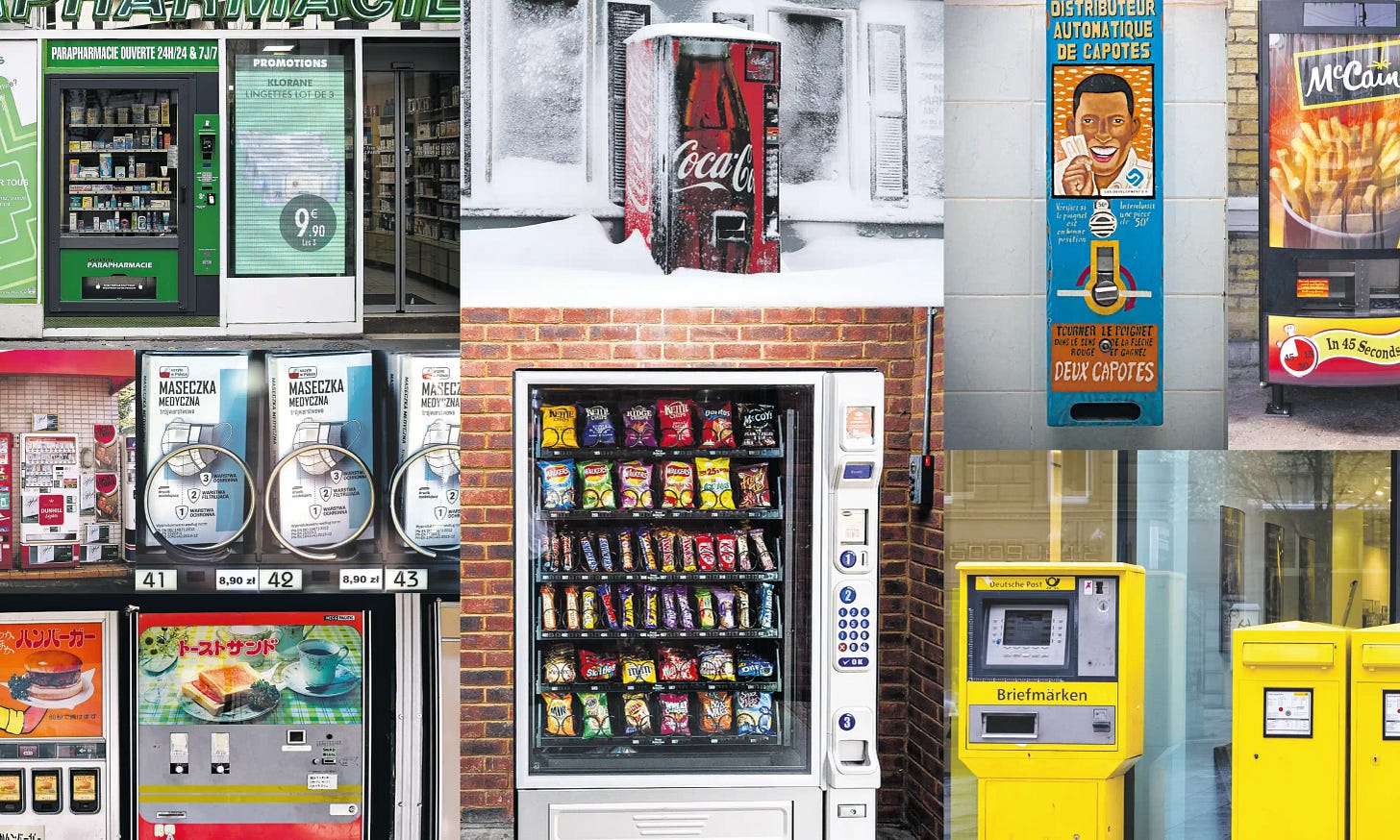Further Reading & Listening #9
Hypersonics, raves, second mentions, Covid mysteries, America's first family, pop afterlives, seeking hegemony, reactionaries, snacking, the war for eternity & kids now
Thank you for supporting Fault Lines.
I hope you enjoy the week’s most diverting and thought-provoking articles and podcasts.
Like a bat out of hell
The Conversation: How hypersonic missiles work and the unique threats they pose
In the case of the U.S., if the determination were made that the weapon was nuclear, then there is a very high likelihood that the U.S. would consider this a first strike attack and respond by unloading its nuclear weapons on Russia. The hypersonic speed of these weapons increases the precariousness of the situation because the time for any last-minute diplomatic resolution would be severely reduced.
It is the destabilizing influence that modern hypersonic missiles represent that is perhaps the greatest risk they pose. I believe the U.S. and its allies should rapidly field their own hypersonic weapons to bring other nations such as Russia and China to the negotiating table to develop a diplomatic approach to managing these weapons.
Repetitive Beats
Astra Magazine: Inside the world of underground warehouse raves, forest parties, and Freetekno
The people around me were in the throes of various kinds of drug-induced insanity. A dark-skinned guy wearing what appeared to be traditional native dress and face paint danced in a circle, whooping and shouting. A towering person in high heels vogued, strutting back and forth, dropped into a split, and popped right out of the split back into the strut. One guy—he must have been fifty years old—was so sweaty he could have easily just walked out of the ocean. He ran in place in front of the single fan in the space. Every so often he’d drop to all fours, barking like a dog and swallowing cold air.
A folding table near the back was covered with cans of cheap beer and bottled water. The guy selling them was so fucked up he had to lean on the wall for support, so every drink you got was smeared with mud. When I asked him where the bathroom was, he pointed at a black door that hung off its hinges. Inside, the toilets were clogged with paper towels. When I flushed, piss-water overflowed out of the stall and onto the feet of the cigarette-smoking fiends waiting in line. No one seemed to care.
Elegant Variations
The New Yorker: The Twitter Account That Collects Awkward, Amusing Writing
Some greatest hits: the Times of London describing “tea” as “the bitter brown infusion.” The Guardian describing a fox who ran onto a soccer field as “the four-legged interloper.” The New York Times describing Grumpy Cat, the Internet meme, as “the sourpuss with the piercing look of contempt.” (In the cat’s obituary, no less.) Even this magazine, last year, describing electric scooters as “the long-necked, flat-bottomed machines.”
Unlike some other journalism-adjacent language-based accounts—for example, New New York Times, which tweets when a word appears in the Gray Lady for the first time—Second Mentions is not a bot. It is crowdsourced from its readers, or from proud writers themselves. The two admins and founders of the account told me that they must remain anonymous, because one currently works at a national media company in London, and is thus very much tweeting from inside the house. A few examples from the past weeks drew from the Boston Globe (St. Patrick’s Day . . . “the annual tradition”), Radio France Internationale (Microplastics . . . “the ubiquitous particles”), the social-media-centric, video-based online platform NowThis News (a swan that blocked a police car was “the feathered obstacle”), and the British news channel Sky News (Will Smith . . . “the former Fresh Prince”).
Not Forgotten
Stat: Covid hasn’t given up all its secrets. Here are 6 mysteries experts hope to unravel
While the spread of viruses like flu falls to very low levels in the off season, it’s also possible that SARS-2 is so infectious that the country never sees waves truly bottom out. If there’s a floor of several thousand cases a day, that means “we’re going to kind of be dealing with this at some level at all times of the year,” with “substantial ebbs and flows in different places at different times,” said Stephen Kissler, an epidemiologist at the Harvard T.H. Chan School of Public Health.
A lot of the experts we’ve spoken to about Covid see this type of eventual move to a still-bad-but-manageable virus as the likeliest of scenarios. But in mid-February, STAT published a submitted commentary that gives us pause. In it Donald Burke, former dean of the University of Pittsburgh’s Graduate School of Public Health, laid out several more troublesome paths the SARS-2 virus could take. They include evolving to attack other organs rather than the respiratory tract, or using the SARS-2 antibodies we have developed against us, triggering more severe disease on future exposures to the virus (or Covid vaccines), a phenomenon known as antibody dependent enhancement. Burke is someone other experts pay attention to and there were groans on Twitter as people absorbed his cautionary words. “I don’t like reading those,” said Marion Pepper, associate professor and interim chair of the department of immunology at the University of Washington.
D'Oh!
GQ: Born as a primetime satire of Middle America, The Simpsons has become something else: the inspiration for all kinds of high art, from the runways of Balenciaga to the canvases of KAWS.
It’s now a cliché to observe that The Simpsons accurately predicted various moments in 21st-century history, among them the Greek debt crisis, the minting of a trillion-dollar bill (later contemplated during the Obama administration to solve the problem of the debt ceiling), and, in what could have been a Faustian bargain to stay on the air for another 20 seasons, a joke from season 11 about a Donald Trump presidency destroying the economy. The Simpsons at its best understood where the world was headed. There’s a season-seven episode that I think about all the time, which opens with a bear wandering into Springfield. The townspeople storm Mayor Quimby’s office, demanding protection, so he institutes a “bear patrol,” which uselessly monitors the town in armored trucks and military jets. When the citizens discover that the mayor had to raise taxes to pay for this service, they return to his office, chanting, “Down with taxes.” Quimby asks an aide, “Are these morons getting dumber or just louder?” The aide checks his clipboard and responds, “Dumber, sir.”
When the music stops
The Guardian: ‘That’s it? It’s over? I was 30. What a brutal business’: pop stars on life after the spotlight moves on
But falling back down to earth, in this business, is an inescapable certainty. Like sportsmen and women, they peak early. A songwriter once told me, citing Bob Dylan, that “artists tend to write their best songs between the ages of 23 and 27”. Despite his enduring success, Dylan has suggested he couldn’t write the songs he wrote in his 20s in his later years, at least not in the same way or with the same instinct, largely because, after that early momentum has fizzled out, things settle down into simply the thing that you do, with all the humdrum ennui associated with that. So what’s it like, I wondered, to still be doing this “job” at 35, and 52, and beyond? What’s it like to have released your debut album to a global roar, and your 12th to barely a whisper? Why the continued compulsion to create at all, to demand yet more adulation? Frankly, what’s the point?
Hegemony Quest
Vanity Fair: Inside the New Right, where Peter Thiel is Placing his Biggest Bets
This New Right is heavily populated by people with graduate degrees, so there’s a lot of debate about who is in it and whether or not it even exists. At one end are the NatCons, post-liberals, and traditionalist figures like Benedict Option author Rod Dreher, who envision a conservatism reinvigorated by an embrace of localist values, religious identity, and an active role for the state in promoting everything from marriage to environmental conservation. But there’s also a highly online set of Substack writers, podcasters, and anonymous Twitter posters—“our true intellectual elite,” as one podcaster describes them. This group encompasses everyone from rich crypto bros and tech executives to back-to-the-landers to disaffected members of the American intellectual class, like Up in the Air author Walter Kirn, whose fulminations against groupthink and techno-authoritarianism have made him an unlikely champion to the dissident right and heterodox fringe. But they share a the basic worldview: that individualist liberal ideology, increasingly bureaucratic governments, and big tech are all combining into a world that is at once tyrannical, chaotic, and devoid of the systems of value and morality that give human life richness and meaning—as Blake Masters recently put it, a “dystopian hell-world.”
The rhetoric of reaction
Tablet: How computer programmer Curtis Yarvin became America’s most controversial political theorist
Having concluded that democracy is a failed and dying form of governance, one that increasingly produces more disorder than order, Yarvin provided a vision for what could come next: an enlightened corporate monarchy that would only arrive after a hard reboot of the political system. It was a vision of total regime change, but one achieved without any violence or even activism since those efforts were doomed to fail and would therefore only strengthen the system they sought to overthrow. For those who believed in it, the next step was to generate the ideas that a future elite would use to run the country once it seized power.
And who should the rulers be, exactly? Rather than a hereditary dynasty, Yarvin proposed the Elizabethan structure of the joint-stock company used by the British East India Company as the best means for selecting and overseeing the monarch. The state, rather than tyrannizing its subjects or being controlled by citizens who endowed its authority, “should be operated as a profitable corporation governed proportionally by its beneficiaries.” Elsewhere, he puts it differently: “I favor absolute monarchy in the abstract sense: unconditional personal authority, subject to some responsibility mechanism.”
Between meals
The Guardian: A day in the life of (almost) every vending machine in the world
Freckle-tanned, portly and quick to laugh, Broderick has a playful exterior that conceals the fiery heart of a vending fundamentalist. He is a man so invested in the roboticised transmission of snacks that, come Halloween, Johnny Brod has been known to park a machine full of sweets in his driveway, letting any costumed local kids issue their demand for treats via prodded forefinger. With his brother Peter and his father, John Sr, he runs the vending empire Broderick’s Ltd, its 2,800 machines occupying some of the most sought-after corridors and crannies of the UK. The Broderick family sugar and sustain office workers, factory workers, students, gym goers, shoppers and schoolchildren. They pep up breaktimes in a nuclear power station. If you’ve ever wolfed a postpartum Snickers in the maternity ward at Chesterfield or Leeds General, or turned thirsty while waiting to fly out of Stansted or Birmingham airports, then you’ve almost certainly shopped, at one mechanical remove, with Johnny Brod. He thanks you.














